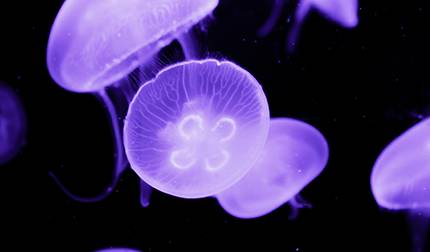
On November 30, 2023, the Beijing Intellectual Property Court held a press conference and released the top ten typical cases of infringement of trade secrets. These cases have guiding significance for clarifying the trial and judgment rules for cases of infringement of trade secrets, enhancing the awareness of self-protection and compliant operation of enterprises, and creating a good atmosphere of respecting and protecting trade secrets in the whole society.
James Ma represented one of the top ten typical cases of infringement of trade secrets, the case of "Infringement of Trade Secrets in Layer Chicken Breeding". Ma Chunsheng represented for the defendant and achieved a comprehensive victory for the client. This case involves a trade secret dispute between a poultry company in Hebei and a poultry company in Beijing. The damages asserted in this lawsuit is as high as RMB 50 million, which has a significant impact on the client. In this case, the technology is directed to the new variety of laying hens using the gene technology and such technology is one of the core technologies independently developed by the client. Among the technical achievements, "Jingfen No. 6," is a representative achievement and is the core intellectual property and technical achievements of the client. Notably, the "Jingfen No. 6" project has been awarded the First Prize in Scientific and Technological Progress by the Ministry of Education.
James Ma is currently partner at GEN Law Firm, based in Beijing and Shenzhen.
Case No. 2: Infringement of Trade Secrets in Layer Chicken Breeding Technology

Case Introduction
In this case, the Plaintiff, a poultry company in Hebei, asserted that it has developed the layer chicken breeding technology with the name of "Dawu Golden Phoenix" and the technical information constituted trade secrets. Mr. Yang, as a member of an expert group organized by the Animal Husbandry and Veterinary Bureau of a province, had accessed the knowledge of the technology when participating the expert evaluations and illegally disclosed such trade secrets to another poultry company. Plaintiff further asserted that the accused company was fully aware that the technology was a trade secret of the plaintiff, but still used it to in the development of its project "Jingfen No. 6" layer line. Based on above, the plaintiff asserted that the accused company and Mr. Yang had jointly infringed on its trade secrets and filed a lawsuit with the Beijing Intellectual Property Court, seeking an injunction against further infringement and requesting the damages for economic losses of RMB 50 million plus reasonable expenses of RMB 200 thousand.
The Beijing Intellectual Property Court held that the technical information asserted by the plaintiff had been disclosed by a patent publication and other public publications, and the patent publication (patent No. 201410505667.7) was filed by the plaintiff and the invention was titled “the cultivation method of lines of pink shell layer chicken with sex distinguishing by feather color”. Accordingly, the trade secrets asserted by the plaintiff had been disclosed and does not meet the statutory requirement of being "unknown to the public". Accordingly, the Beijing IP Court rejected the claims of the plaintiff under Article 9.4 of the Anti-Unfair Competition Law of 2019.
Both parties did not appeal the judgment of the first-instance and the judgment became effective immediately.
Key Merits of the Case
The technology of layer chicken breeding line is the prior art in this field, and the technology involves selecting male and female chickens from different breeds for crossbreeding to produce commercial generations of layer chickens that meet research and development demands. The technology of breed layer chicken breeding line of “Dawu Golden Phoenix” used by the Hebei poultry company made certain changes to the traditional practice of sourcing red-feathered hens from Rhode Island Red male lineages, and crossbreed White Leghorn hens with Rhode Island Red roosters to cultivate a new breed of layer chickens to achieve the results that the chickens can be identified by feather color. However, the key technical information of the technology had already been disclosed in the patent application with No. 201410505667.7 and title of "the cultivation method of lines of pink shell layer chicken with sex distinguishing by feather color".
And the Hebei poultry company is one of the applicants, and the rest technical information had been disclosed by earlier publications. Therefore, the technology information claimed by the Hebei poultry company lost its secrecy and failed to constitute a trade secret as defined under Article 9.4 of the Anti-Unfair Competition Law of 2019.
It is also pointed out in the case that right holders may choose from different intellectual property protection models for certain intellectual achievements. For example, between protection as trade secrets or patent, if the right holder opts for protection as a trade secret, reasonable confidentiality measures must be taken to prevent the secret from becoming publicly known. If the right holder applies for a patent based on the trade secrets, the trade secrets will be disclosed to the public and lose its confidentiality when the patent application are published. Accordingly, such intellectual achievements cannot be protected as trade secrets anymore.











